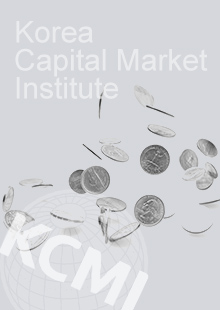Find out more about our latest publications

Electronic Trading System for OTC Derivatives
Research Papers 06-07 Dec. 19, 2006
- Research Topic Capital Markets
- Page 183
- No other publications.
The global market for OTC derivatives has expanded steadily and rapidly over the past decades, and the extraordinary development of the domestic derivatives market is one of the most dramatic changes in Korea. The legislative change, moreover, which is near at hand, will increase the range of OTC derivatives available to corporations and investors, and foster more precise ways of managing risk. This development would contribute to the transformation of Korean financial system to a market-based one.
Traditionally,the terms and conditions of OTC instruments tend to be negotiable between the parties to the contract and reflect individualized needs. The customization to individual customer needs has prohibited OTC transactions from being conducted on electronic trading facilities. As OTC markets develop, however, the extent to which OTC trades engage in electronic trading and clearing increases. The widespread use of electronic trading and clearing have the potential to increase efficiency and reduce systemic risk.
In domestic OTC derivatives markets, however, a few pay attention to the important role of electronic trading and clearing and a cloud of legal uncertainty hangs over even worse. It could discourage innovation and adopting of trading system and damage Korea leadership in North East Asia by driving transactions off-shore. Recognizing the important role that OTC derivatives play in our financial markets, and the dangers of continued lack of trading system, this report has examined the global trends: the existing regulatory framework, recent innovations, and the potential for future development.
The main recommendations from this analysis are summarized as promoting innovation, competition, efficiency, liquidity, and transparency in OTC derivatives markets, by: providing trading system for OTC derivatives, removing legal impediments to innovation (specifically to the development of electronic trading systems), removing legal obstacles to the development of appropriately regulated clearing systems, and maintaining Korea leadership in North East Asia derivatives markets through a combination of the measures outlined above.